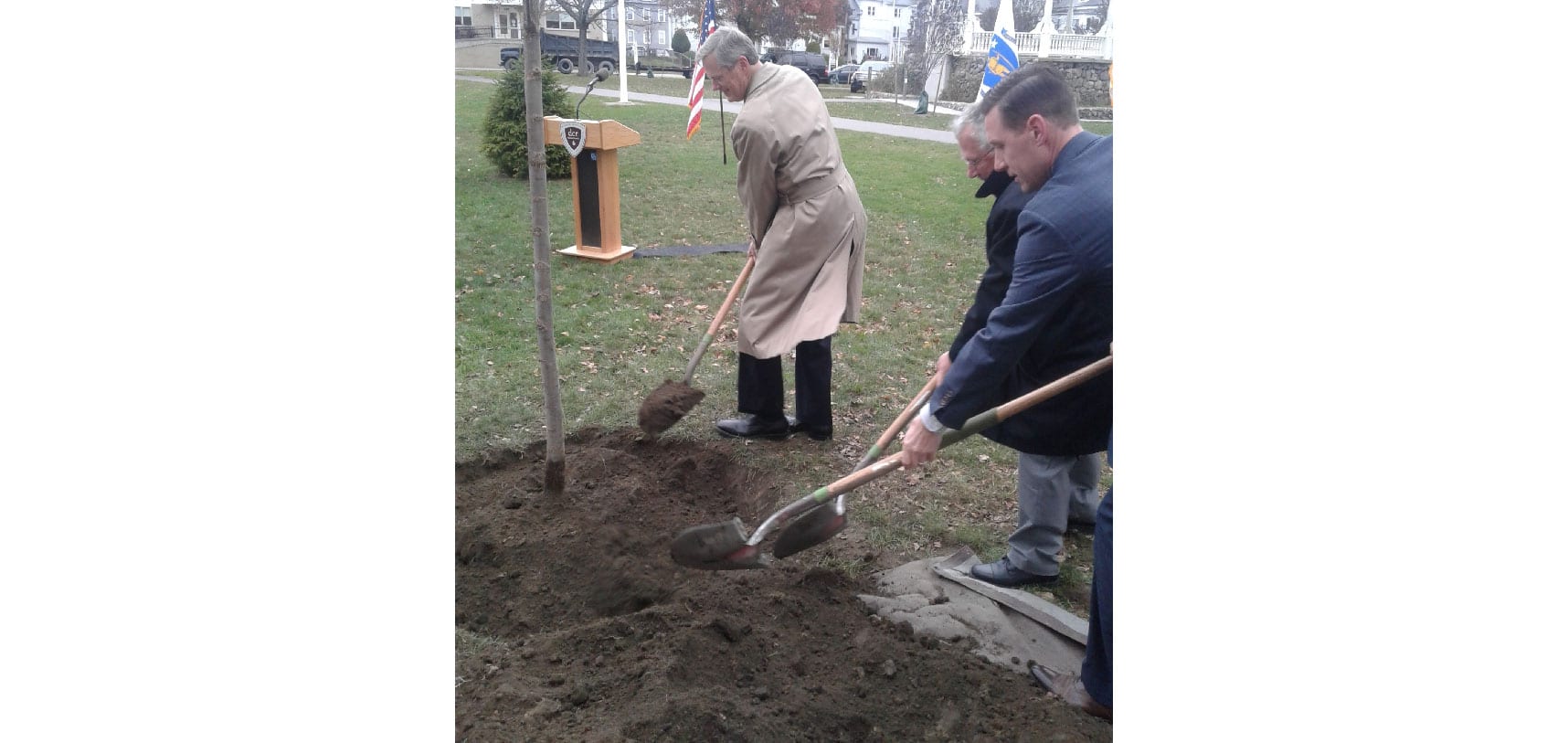LYNN — Charlie Brown would have been proud of the tree planted Monday on Lynn Common.
With its scrawny trunk and bare branches, the hybrid American elm didn’t exactly look like the centerpiece of a celebration that brought Gov. Charlie Baker to the city.
But the tree is the 10,000th planted as part of a state urban beautification and environmental spruce up initiative that includes 500 trees taking root around Lynn.
Baker and the city’s legislative delegation led by state Sen. and Mayor-elect Thomas M. McGee, shoveled dirt into a hole around the elm before Baker said he would like to see the planting initiative sprout into a major urban greenery program.
“I’d like to see us plant another 10,000 and 10,000 after that. Trees are a critical part of our ecosystem,” Baker said.
The state’s Greening the Gateway Cities program has planted trees in 13 cities since 2014, including Lynn and Revere. Four out of five trees planted take root on private property where state Department of Conservation and Recreation (DCR) Commissioner Leo Roy said homeowners have agreed to care for trees for two years.
Greening the Gateway, according to a DCR statement, is investing $8 million annually to plant thousands of trees averaging six feet in height. Up to 2,500 trees will be planted in Lynn — enough to fill Boston Common.
“We really want private citizens to adopt the trees,” Roy said.
Expanding the “urban tree canopy,” according to the DCR statement, saves homeowners about $230 a year through reduced heating and cooling costs for each household within selected neighborhoods.
Planting trees is tied to increased property values as well as reduced stormwater runoff and flooding and improved air quality.
“The expansion of DCR’s Greening the Gateway Cities Program has allowed communities like Lynn to reap the benefits of a healthier, more vibrant urban tree canopy, while allowing the Commonwealth to pursue its emission reduction goals under the Global Warming Solutions Act,” said state Energy and Environmental Affairs Secretary Matthew Beaton.
Residents can sign up to receive a tree at no cost as long as they commit to watering trees for two summers. To arrange to receive a tree, call the DCR’s Urban and Community Forestry Program at 617-626-1502 or visit the agency’s website.
McGee said urban planting initiative dovetails with park improvement projects, including landscaping and other work underway on Lynn Common’s Commercial Street end. State money is helping to pay for work.
“Thank you for making this a reality,” McGee told Baker and state officials.

